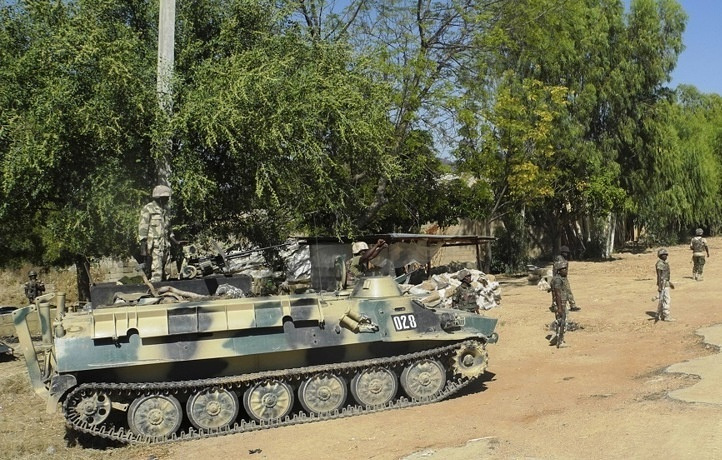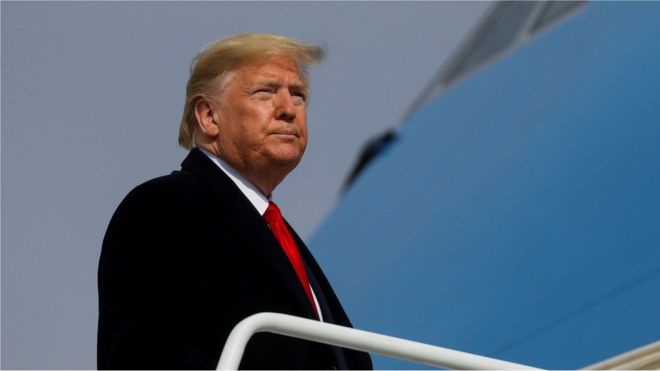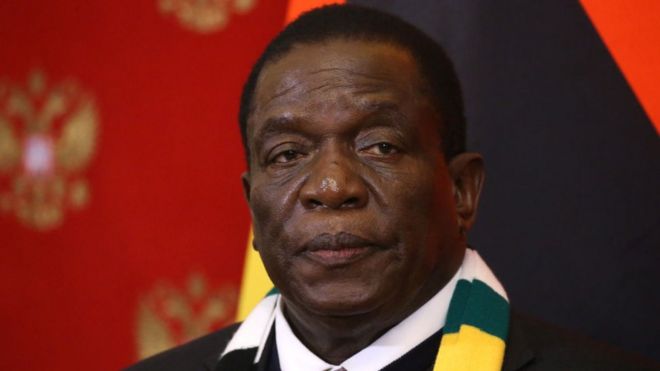News Africa
Niger’s Situation Turning Sophisticated and Contradictory

Several reports on the developments in Niger, the latest West African and Sahelian State to experience military coup d’état, the unexpected removal of democratically-elected President Mohamed Bazoum, on July 26, indicate explicit complexities and contradictions. Gen. Abdourahmane Tchiani has declared himself leader of the nation, and has begun forming his government by appointing a new Prime Minister. But seemingly there are three scenarios: the first is an internal conflict between two distinctive opposing groups.
The second is between the regional bloc – Economic Community of West Africa States (ECOWAS) backed by the African Union (AU) and Niger together with three French-speaking West African States including Burkina Faso, Chad and Mali, and strongly backed by Algeria, Guinea and Libya.
The third which involves external powers – the United States and Europe, particularly France, these have joined the ECOWAS and AU while China and Russia have taken the position of French group. For the past decade, Russia aims at fighting growing neo-colonial tendencies and U.S. imperialism and hegemony in Africa.
In reality it has supported, with heavy military presence, French-speaking African States to uproot, to flush out France’s dominance and investment interests in Africa. Russia has joined their anti-French and anti-Western forces in the struggle for a new liberation from economic exploitation and against the scramble for resources.
At the present time, what is critically at stake is either military government or constitutional democracy in Niger. Several official statements emerging from the headquarters of the African Union and ECOWAS, even from the United States and Europe called for measures to restore constitutional rule. On August 10, ECOWAS (Economic Community of West African States, ECOWAS), at its meeting in Abuja, the capital of Nigeria, ordered the deployment of a “reserve force” to restore constitutional order in Niger.
The road ahead undoubtedly has challenges. But ECOWAS, which still hopes to reach a peaceful resolution to the crisis, has so far not released details of any intervention. It is not known when and if troops will intervene or which state will provide its soldiers. ECOWAS is also exploring the use of diplomatic mechanisms. The website of the African Union also raised support to launch a military operation in Niger. But on the contrary, what is confusing here also is the official statement released that it will strike as soon as “the United States and Europe give support” for the military intervention.
According to a TASS News Agency report on August 12, ECOWAS Commissioner for Political Affairs Peace and Security, Dr. Abdel-Fatau Musah, who graduated from Moscow State University, pointed out that even though the Wagner Group was not involved in the coup, it still could benefit from the situation.
Meanwhile, Paris has given full support to the ECOWAS initiative, and Chairman of the African Union Commission, Moussa Faki Mahamat, also did so, stressing that AU is very concerned about the conditions of detention of Niger’s head of state, Mohamd Bazout, democratically elected in 2021 and ousted by coup plotters on July 26. And in response to the regional bloc’s decision not to rule out armed intervention, hundreds of pro-takeover Nigeriens demonstrated in front of a French military base in Niamey.
In his closing remarks at the 2nd Extraordinary Summit on the socio-political situation in Niger held in Abuja, Chairman of the ECOWAS and Nigerian President Bola Ahmed Tinubu, reconfirmed the regional bloc’s steadfast commitment in helping the people of Niger’s journey towards peace and democratic stability. In addition, the sanctions put in place against the coup-makers’ Niger have been maintained and should even be strengthened, obviously to the detriment of the population.
Bola Ahmed Tinubu, however, emphasized the remarkable outcome of the summit, which authorized the standby deployment of ECOWAS troops to restore constitutional order, attests to the power of collaboration and unity among ECOWAS member states.
“We have reaffirmed our commitment to the people of Niger and to the progress of our entire ECOWAS Community. From the Communiqué of this extraordinary summit, no option is taken off the table, including the use of force as the last resort. If we don’t do it, no one else will do it for us. We remain steadfast in supporting Niger in a journey towards peace and democratic stability,” ECOWAS Chairman and Nigerian President Tinubu said in strong-toned remarks.
As already known, the United States, France and the European Union have suspended financial assistance to Niger. Some experts argue that ECOWAS has taken a stronger stance against Niger than it did against juntas in Burkina Faso and Mali during the last three years.
According to the executive order, ECOWAS imposes eight (8) stringent sanctions. The decision was taken at an extraordinary session of the Authority presided over by President of Nigeria Bola Ahmed Tinubu in Abuja. Below is a list of Economic Sanctions placed on Niger Republic:
1. Closure of Land and air borders between ECOWAS and Niger.
2. Institution of ECOWAS no flight zone to all commercial flights to and fro Niger.
3. Suspension of all commercial and financial transactions between ECOWAS member states and Niger.
4. Freeze all service transactions including energy transactions.
5. Freeze assets of Niger Republic in all ECOWAS Central banks.
6. Freeze all Niger State and the state enterprises and Parastatals in commercial banks.
7. Suspension of Niger from all financial assistance and transactions with all financial institutions.
8. Impose travel bans on the military officials and their families involved in the coup attempt including anyone who accepts to take a position in the military government.
At the end of the Summit, the ECOWAS Authority of Heads of State had issued a unanimous directive to restore constitutional order in Niger. An official communiqué read by Dr. Omar Touray, President of the ECOWAS Commission, said the leaders directed the Committee of the Chiefs of Defence Staff to activate the ECOWAS standby force with all its elements immediately.
The leaders also issued a stern warning to member states whose actions, whether direct or indirect, impede the peaceful resolution of the Niger crisis. The communiqué emphasized that such actions would entail consequences within the ECOWAS community.
Underscoring its continued commitment to restoring constitutional order through peaceful means, the leaders noted that the military rulership of the Republic of Niger has repelled all diplomatic efforts by ECOWAS to resolve the crisis at various intervals.
As the one-week ultimatum for the restoration of constitutional order expired, the ECOWAS Authority made the following decisions:
(A) Reiterates its strong condemnation of the attempted coup d’etat and the continued illegal detention of President Mohammed Bazoum, his family and members of his government.
(B)Further condemns the detention conditions of President Bazoum and squarely places the responsibility for the safety, security, and physical integrity of President Bazoum, as well as his family and government members, on the CMSP alone.
(C) Upholds all measures and principles agreed upon by the Extraordinary Summit held in Niger on 30th of July, 2023.
(D) Underscores the determination of the ECOWAS Authority to keep all options on the table for the peaceful resolution of the crisis.
(E) Enforces all measures, in particular, border closures and strict travel bans as well as assets freezes on all persons or groups of individuals whose actions hinder all peaceful efforts aimed at ensuring the smooth and complete restoration of Niger’s constitutional order.
Furthermore, the West African leaders called on the African Union to endorse their decisions on the Niger crisis while also urging partner countries and institutions, including the United Nations, to support ECOWAS in its effort to ensure a quick restoration of constitutional order in the Niger Republic.
The President of the ECOWAS Commission was further tasked with overseeing the implementation of sanctions stemming from the initial Extraordinary meeting in Abuja.
The Russian Foreign Ministry said in an official statement that it supports all actions taken by ECOWAS. It also cautioned that any attempts to settle the crisis in Niger militarily would only draw out the conflict and destabilize the Sahara and Sahel region. “The ECOWAS is taking steps to restore constitutional order in Niger through a political and diplomatic dialogue with the new Nigerien authorities. Russia supports the ECOWAS’ mediation efforts aimed at searching for ways out of the crisis that was created,” the ministry’s website said.
“At the same time, there has been information that the ECOWAS decided at its extraordinary summit in Abuja on August 10 to prepare and deploy its reserve forces, which could stage an armed incursion into Niger to free Mohamed Bazoum. The Nigerien military declared their readiness to fend off any foreign intervention. Moreover, they have announced the formation of a provisional government, which includes civil society representatives.
The Foreign Ministry further believes that a military approach to settling the crisis in Niger risks leading to a protracted standoff in the African country and a sharp destabilization of the situation in the Sahara-Sahel region as a whole.
The Kremlin has taken two contrasting positions. It has urged a return to constitutional order and at the same pledge military support to the new interim government. Both Russian and foreign media say Kremlin’s with an open invitation from the coup plotters and their regional allies, the entire central Sahel region could fall to Russian influence via the Wagner Group.
Mohamed Bazoum became president in April 2021 in Niger’s first democratic transfer of power since independence in 1960, but was deposed in an army-led coup in July 2023. Reasons for his removal include “deteriorating bad governance” and dissatisfaction with his handling of security matters. The coup also highlights a wider problem with uranium deposits. Niger hosts French and US military bases and before the coup was seen as a key partner in the fight against the Islamist insurgencies in the region.
Under these circumstances, the July 2023 military coup could plunge the Sahel into further uncertainty, create more economic instability and trigger a new migration crisis, after similar takeovers in neighbouring Burkina Faso and Mali, and most the entire Sahelian region and down to the Gulf of Guinea.
Given its uranium and oil riches, Niger has strategic significance for the United States, China, Europe and Russia. The livestock sector serves as a major export. Still, it is ranked among the poorest in the world. Niger, is a huge ethnically diverse with an estimated population of 24.4 million, sits in the middle of the Sahel, which has become home to the Islamic State and Al Qaeda terrorist groups, spilling over across the borders with Mali and Burkina Faso and other Sahelian States.
WATCH Our latest Episode with Kennedy Agyapong in South Africa below:
Source: Thepressradio.com|Kestér Kenn Klomegâh





